Oct 28, 2025 10:47 AM
In Memoriam: Jack DeJohnette, 1942–2025
Jack DeJohnette, a bold and resourceful drummer and NEA Jazz Master who forged a unique vocabulary on the kit over his…
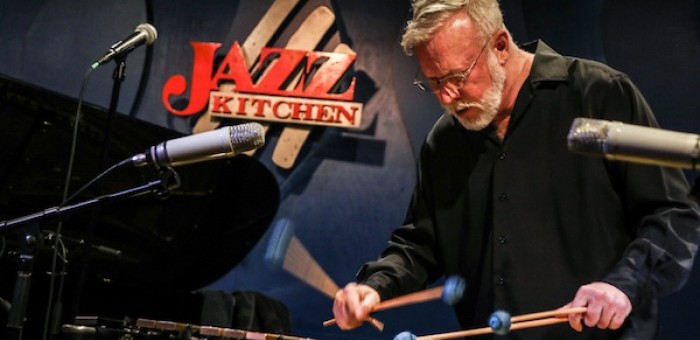
Gary Burton performs at the Jazz Kitchen in Indianapolis on March 17. The performance marked the final stop on his farewell tour of the U.S.
(Photo: ©2017 Mark Sheldon)Legendary vibraphonist Gary Burton would have preferred to tiptoe his way out of the jazz world. But upon the advice of his manager, what started as a final performance with Japanese pianist Makoto Ozone in Burton’s South Florida home turned into a cross-country “farewell tour” that brought him across the East Coast and into the Midwest. That tour ended March 17 at the Jazz Kitchen in Indianapolis, just 40 miles from the vibraphonist’s hometown of Anderson.
DownBeat caught up with Burton during his stop at SPACE in Evanston, Illinois, on March 14, during which he and Ozone revisited long-cherished originals, standards and even a Ravel composition.
Why are you retiring?
The simple answer is health reasons. I had six heart operations and I suffered some cognizant issues after the last one, which was a major one. I was without a heartbeat for half an hour and was revived. After I recovered, I noticed I didn’t have perfect pitch any more, which I had all my life. I also noticed that I had trouble sight-reading and everything that required intense concentration became a struggle. My playing reached a peak a few years ago and was now moving downward. I always said that I didn’t want to one day be a musician who could hardly play anymore … So, two years ago, I started the process of winding down. That’s now ending with this little tour.
You seem to have a preference for duos with pianists. Can you explain?
The piano and the vibraphone produce together a very ideal and unique blend of sounds. The other thing is the creative process taking place in a duo. I describe it this way: If you’re playing solo, you’re giving a speech; if you’re in a band, you’re part of a panel discussion; but in a duet, it’s like having a one-on-one conversation with a good friend. The interaction becomes fast and furious because in music you both talk continually as you exchange information. With a good rapport, amazing things happen.
Can you describe your relationship with Makoto Ozone?
We’ve know each other for 34 years. Because I had such a good rapport with Chick Corea, I used to think that I might not be able to do much with any other piano player. Then, I came across Makoto. The main difference with Chick is that Makoto is extremely adaptable to other types of music. During the course of a performance, we play standards, modern jazz, tunes from the 1930s, tango or classical.
Do you take the credit for creating the four-mallet technique?
What I take credit for is popularizing it. There were plenty of examples of players using four mallets before I came along. In fact, there are some recordings from the 1930s with Red Norvo playing the xylophone that are pretty impressive. So, I got the credit because I got popular with it. Then, somebody started to call my way of holding the mallets the “Burton grip,” and it has stuck. And I wasn’t even the first one to use that way of holding the mallets.
You thought you were taking a risk when you came out as gay. What does it say about the jazz community?
Think back. It was 1983 or 1984—a different time in history. The idea of gay marriage was unheard of. I was in my early 40s coming to terms with that identity that I have. I could either keep hiding it or be myself for the second half of my life. I realized it could have an effect on my career. The good news is that it didn’t have any. It was a great relief and I felt strongly about being honest about myself.
What do you think of the OutBeat Festival, the queer jazz festival?
They contacted me and I told them I wasn’t interested. I have the same feeling as with the women’s jazz festival in Kansas City. I know it is well-intended but musicians should be hired based on their abilities. So, the idea of singling out gay jazz musicians didn’t make sense to me.
How has the jazz world changed since you started?
When I first was on the road in the beginning of the 1960s with George Shearing, and then Stan Getz, we would play club gigs in major cities and our audiences were people mainly in their 40s or 50s. That changed starting in the 1970s because of jazz education. A group of band directors formed the [International] Association of Jazz Educators with the goal of bringing jazz bands into schools. Boy, by the end of the 1970s, they had succeeded with hundreds and hundreds of high schools and colleges. Suddenly, I found myself playing in South Dakota in a high school cafeteria. We are now reaching a much wider and diverse audience.
Is there anything you wish you could have accomplished?
On the vibes, I feel that I’ve done everything I could have imagined. If I have any regrets, it’s that I didn’t have time to explore more other kinds of music, other styles of jazz. There are also collaborations with other musicians that I would have liked to do. I always wanted to do something with Sarah Vaughan. We talked about it a few times in passing but never got around to it. And then she was gone. Many of my friends got to play with Miles Davis, and I didn’t. It would have been scary and fascinating.
Is there any aspect of a professional musician’s life you’re going to miss?
The part most people miss is the glamor, if you think of life in jazz as glamorous. It’s more glamorous now than it used to be when you were riding in a bus all year. You’re meeting interesting people and seeing interesting places. It is challenging and tiring at times, but it’s fun. I’m a classic introvert and I have difficulties dealing with crowds and schmoozing. So, I’m not going to miss the socializing a lot of musicians enjoy.
What do you intend to do now?
I’ve been doing music for about 60 years and I am going to take a break from any music-related activities. This is going to be the last phase of my life—I’m 74—and it’s going to be an adventure. I always wondered if there were some areas of interest I could get just as enthusiastic about. After writing my autobiography, which was very satisfying, I thought I could go into writing—but not about music. We’ll see. Check back with me in a year or two. DB
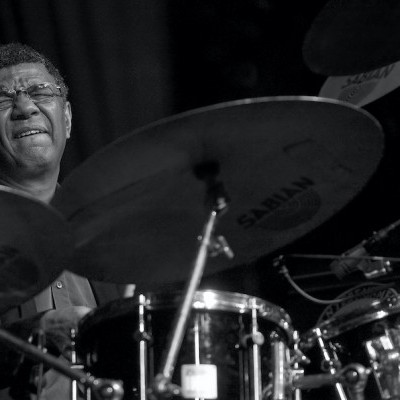
Jack DeJohnette boasted a musical resume that was as long as it was fearsome.
Oct 28, 2025 10:47 AM
Jack DeJohnette, a bold and resourceful drummer and NEA Jazz Master who forged a unique vocabulary on the kit over his…
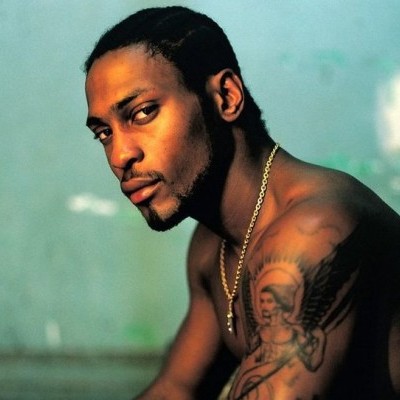
D’Angelo achieved commercial and critical success experimenting with a fusion of jazz, funk, soul, R&B and hip-hop.
Oct 14, 2025 1:47 PM
D’Angelo, a Grammy-winning R&B and neo-soul singer, guitarist and pianist who exerted a profound influence on 21st…
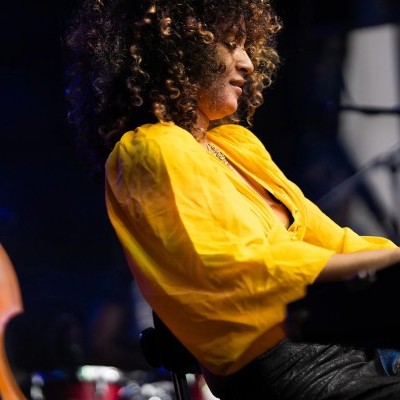
Kandace Springs channeled Shirley Horn’s deliberate phrasing and sublime self-accompaniment during her set at this year’s Pittsburgh International Jazz Festival.
Sep 30, 2025 12:28 PM
Janis Burley, the Pittsburgh International Jazz Festival’s founder and artistic director, did not, as might be…
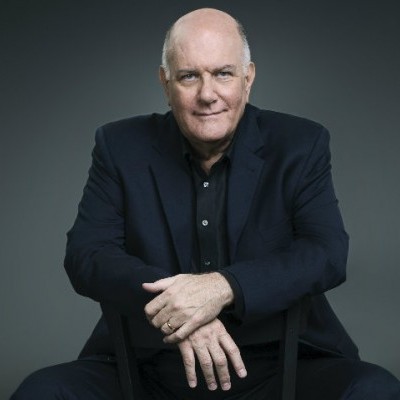
Jim McNeely’s singular body of work had a profound and lasting influence on many of today’s top jazz composers in the U.S. and in Europe.
Oct 7, 2025 3:40 PM
Pianist Jim McNeely, one of the most distinguished large ensemble jazz composers of his generation, died Sept. 26 at…
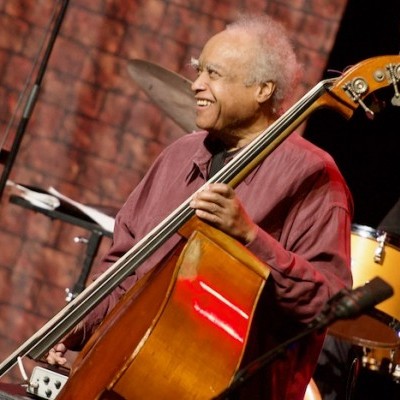
Drummond was cherished by generations of mainstream jazz listeners and bandleaders for his authoritative tonal presence, a defining quality of his style most apparent when he played his instrument unamplified.
Nov 4, 2025 11:39 AM
Ray Drummond, a first-call bassist who appeared on hundreds of albums as a sideman for some of the top names in jazz…